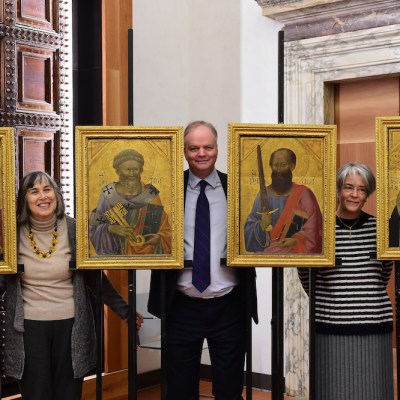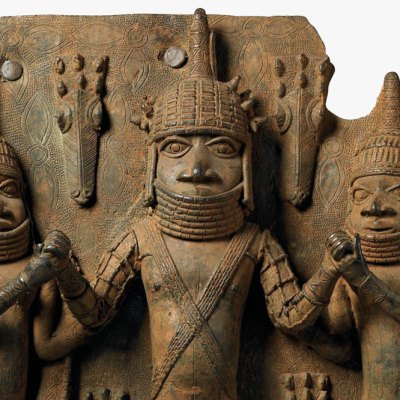An independent Swiss report has described the quality of the existing provenance research into the Emil G. Bührle Collection as ‘superficial’ and full of ‘false results’. The report by Raphael Gross, president of the Deutsches Historisches Museum Foundation, was commissioned in May 2023 by the canton and city of Zurich and the board of the Kunsthaus Zürich. The latter accepted a long-term loan of works from the Bührle Collection in 2012 and opened a new extension to house them in October 2021. The art collection formed between 1936–56 by Emil Bührle, who sold weapons to Nazi Germany and profited directly and indirectly from slave labour in concentration camps, has long been a source of controversy. (Most recently, in October 2023, the members of a panel advising the Kunsthaus Zürich on an exhibition of works from the collection all resigned after disagreeing with curators about how to discuss its origins.) The advisors of Gross’s report found that 62 of the 205 works on loan to the Kunsthaus Zürich appeared to have belonged to Jewish owners, a fact not noted by the E.G. Bührle Collection Foundation, which classified the provenance, however incomplete, of 203 of these works as ‘unproblematic’. The report’s recommendations are 1) that provenance research be continued, 2) that the Kunsthaus Zürich set up a committee that observes the Washington Principles, as updated in 2024, and 3) that the museum conduct a further (‘perhaps public’) debate on the future of the Bührle Collection loan. Earlier this month, the Bührle Collection Foundation announced its plans to come to a settlement with the heirs of the Jewish owners of five Impressionist paintings in its collection.
Eike Schmidt, who served as the director of the Uffizi gallery from 2015–23, has lost his bid to become mayor of Florence. The German-born art historian achieved 39 per cent of the vote, losing to Sara Funaro of the centre-left Democratic Party (PD), who took more than 60 per cent. Schmidt was backed by a right-wing coalition comprising prime minister Giorgia Meloni’s party the Brothers of Italy, Matteo Salvini’s the League, and Forza Italia. Schmidt left the Uffizi in December 2023 to take up a four-year post at the helm of the Museo e Real Bosco di Capodimonte in Naples. His mayoral bid – which, if it had succeeded, would have meant leaving the Neapolitan museum – provoked mixed reactions, with the president of the Campania region describing it as ‘offensive for Naples’. More recently, Schmidt sparked controversy with campaign leaflets that featured the phrase ‘Florence is not Torre del Greco’, which critics described as a xenophobic slur against southern Italians.
The US Supreme Court has reversed a ruling that limited the Sackler family’s liability in future civil claims brought by victims of the opioid crisis. Members of the Sackler family controlled Purdue Pharma, the pharmaceutical company that manufactured and marketed OxyContin and filed for bankruptcy in 2019 in the wake of thousands of lawsuits brought against it for its role in the opioid epidemic. Many museums around the world, including the National Portrait Gallery in London and the Guggenheim in New York, were successfully pressured by public figures, most prominently the artist Nan Goldin, to cut ties with the Sacklers, who had made large donations to these institutions. In 2022, the Sacklers reached a deal with the attorneys general of eight states and the District of Columbia in which the family agreed to pay $5.5bn–6bn over 18 years to surviving victims of the opioid epidemic in exchange for protection from further civil lawsuits. The latest Supreme Court decision has ruled that the bankruptcy court did not have the right to afford Purdue Pharma or the Sacklers protection from further civil claims. The judgement leaves the bankruptcy plan and settlement deal in limbo.
The director of the Ujazdowski Castle Centre for Contemporary Art (CCA), one of Warsaw’s most important art museums, has been sacked by the Polish minister of culture, Hanna Wroblewska. Piotr Bernatowicz was appointed in 2019 by the then culture minister Piotr Glinski of the right-wing Law and Justice party (PiS). Bernatowicz was known to hold right-wing positions, and once said that he would fight back against art institutions becoming ‘left-wing ideological ghettos’. His tenure saw the cancelling of several exhibitions that had been scheduled before he became director, leading to widespread accusations of censorship and political bias. PiS had been in government since 2015 but in October 2023 lost the parliamentary election to Civic Coalition, an alliance of liberal parties led by former European Council president Donald Tusk. Although Wroblewska has claimed that Bernatowicz’s sacking was mainly due to ‘irregularities’ regarding public finances, she also referred to what she sees as the ‘disappearing identity’ of the CCA, and the dismissal comes on the heels of pledges made by Tusk to undertake the ‘de-PiSisation’ of Polish cultural life. The interim director has been named as Kamila Bondar, who has been president of the ING Polish Art Foundation since 2015. The museum has said that it will soon advertise for a permanent replacement.
The Stedelijk Museum in Amsterdam will return a painting by Henri Matisse to the heirs of its former owners. Odalisque (1920–21) has been in the museum’s collection since 1941, when the German-Jewish art patrons Albert and Marie Stern sold the work to fund their family’s escape from the Netherlands, which was then under Nazi occupation. The museum announced the painting’s return after Amsterdam City Council received ‘binding advice’ from the Dutch Restitutions Commission, which published a report that concluded that the sale of the painting ‘arose from a desire for self-preservation’ and that Stern had been ‘forced to sell part of his art collection’. In a statement, the heirs said: ‘The decision has provided symbolic justice to our grandfather.’



